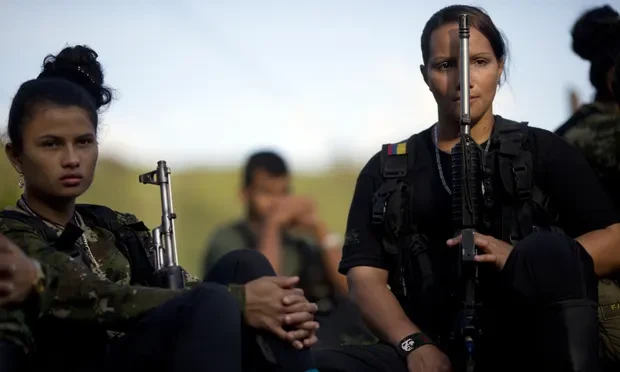A Colombian splinter group of former FARC guerrillas known as Segunda Marquetalia has agreed to a "unilateral ceasefire" and the release of captives following negotiations with the government, according to a joint statement Saturday.
The talks, held in the Venezuelan capital Caracas, are the third launched under Colombia's leftist President Gustavo Petro, who has faced multiple obstacles in his efforts to end six decades of conflict between his country's security forces, guerrillas, right-wing paramilitaries and drug gangs.
The delegations to the talks agreed on "the unilateral ceasefire of the Second Marquetalia-EB (Ejercito Bolivariano, or Bolivarian army)" as well as committing to "delivery of the people they are holding," according to a document signed by chief government negotiator Armando Novoa and rebel representative Walter Mendoza.
The agreement's start date was not specified, but the text seen by AFP states "the full implementation of de-escalation will begin as soon as the presidential decree on offensive military operations comes into force."
The statement asserts the unilateral ceasefire does not restrict the national security forces' "consitutional and legal powers."
And it says the rebel group also agreed "not to remain armed or in uniform" in urban centers or "land and river routes."
A meeting in Tumaco, in western Colombia's Narino state, will be held between the two parties "no later than July 20" to present the "de-escalation" agreement, as well as to define a timetable for identifying social and economic projects.
Segunda Marquetalia is a rebel group that broke away from a historic 2016 ceasefire deal with FARC guerillas.
The Colombian government has since 2022 been involved in stop-start talks with the Marxist National Liberation Army (ELN) -- responsible for the kidnapping last October of the father of a Liverpool footballer, Luis Diaz.
In October 2023, talks began with the main FARC dissident group, the EMC, which have been plagued by ceasefire violations and a major split in the group in April, which saw half of its fighters abandon peace negotiations.


